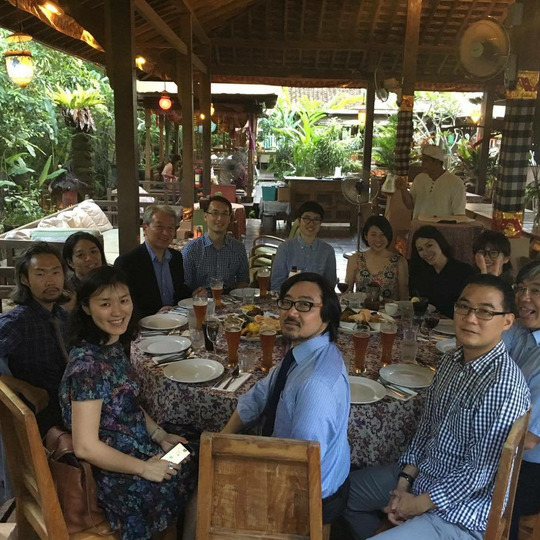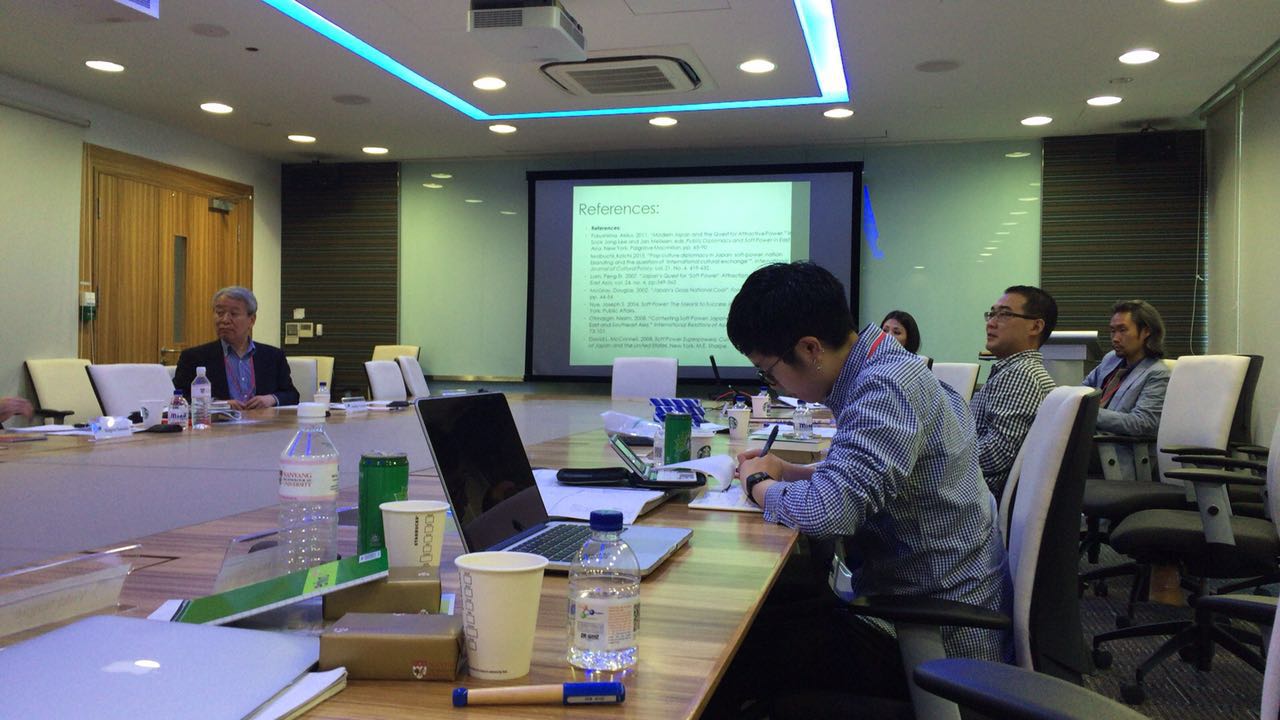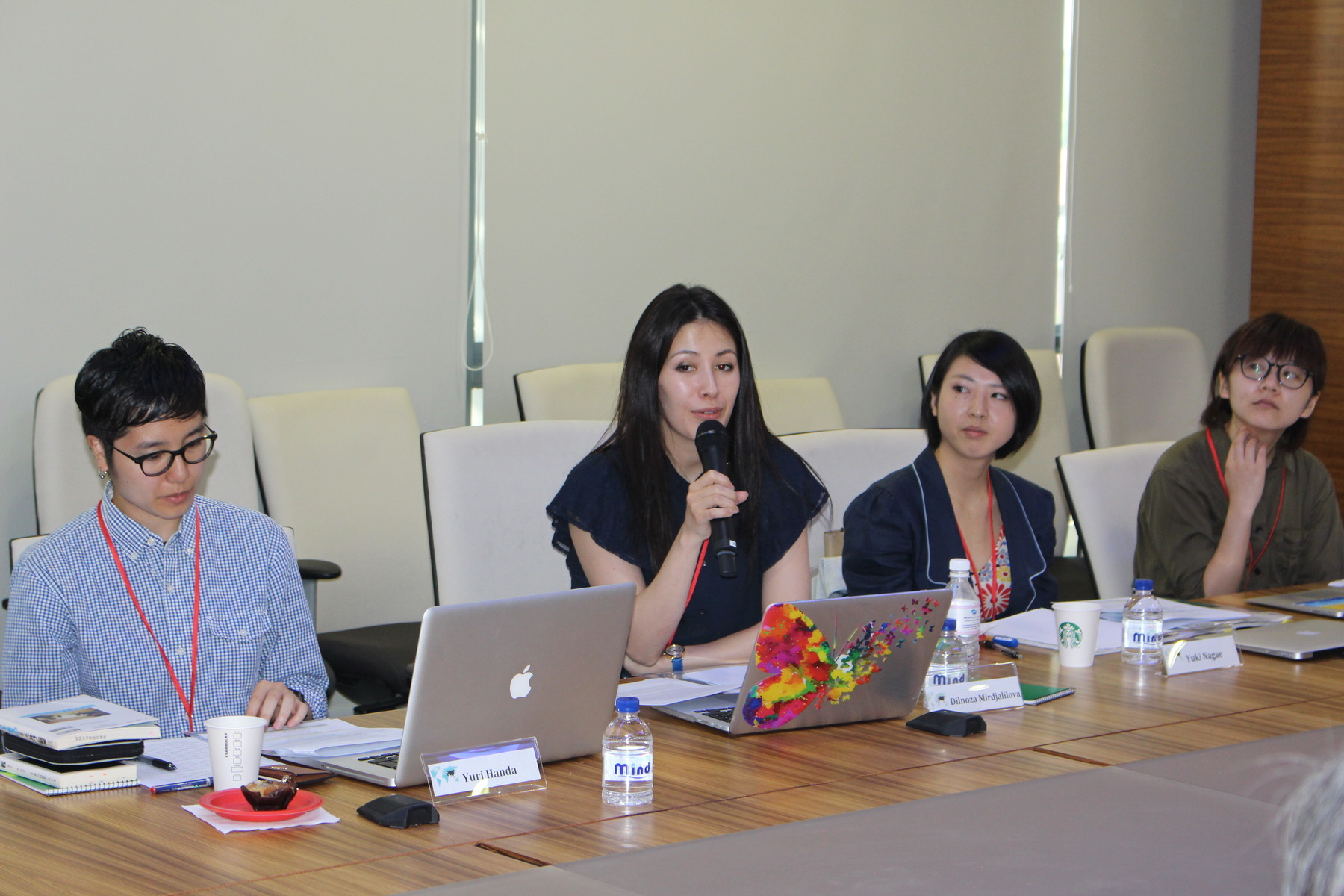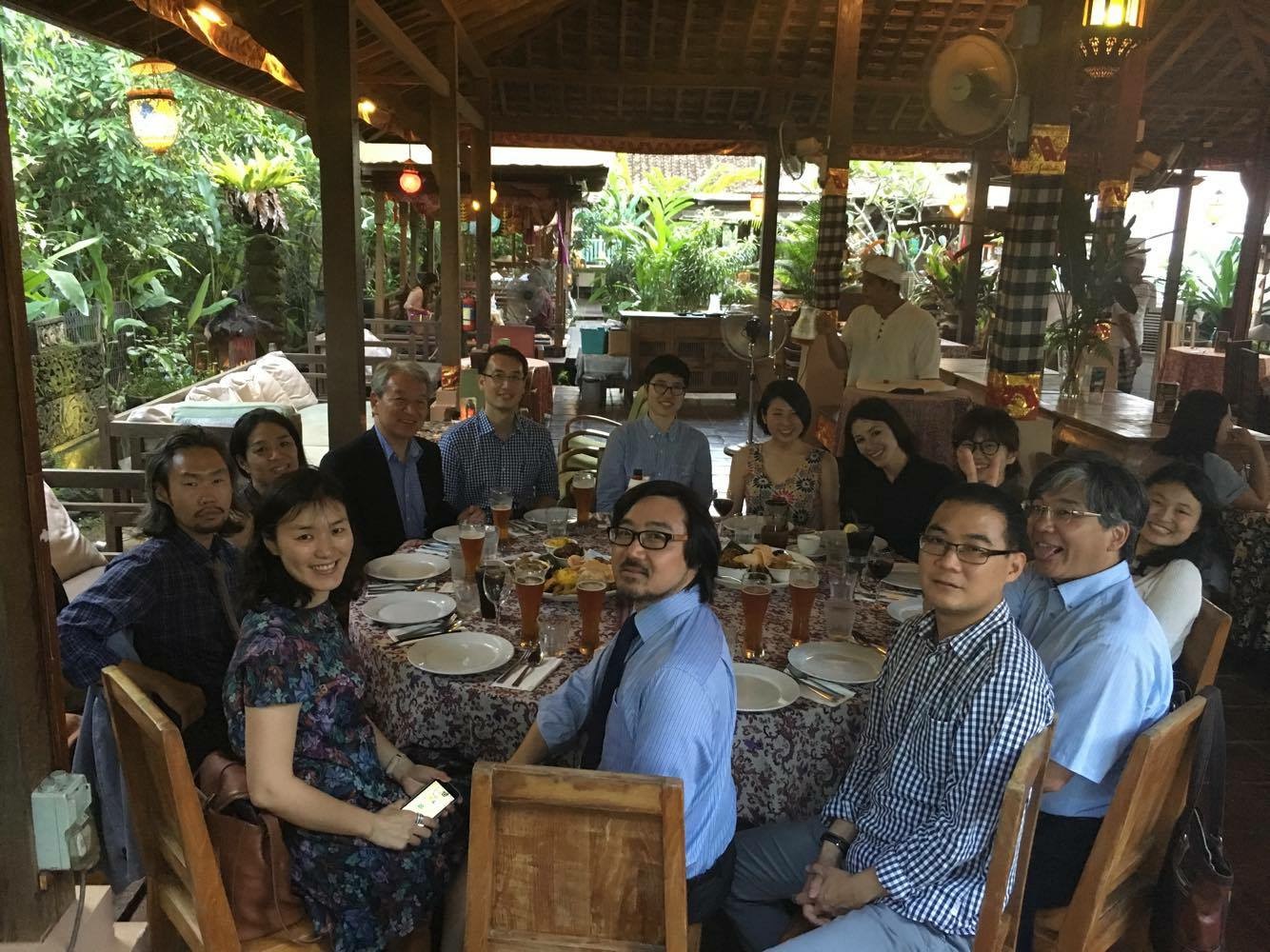
Report: UT-NTU Joint Seminar on “Crossing Over National Boundaries: In Search of Innovative Approaches to Asian Studies” Jiaxi HOU
- Time and Date
- June 24 (Fri.) to June 26 (Sun.), 2016
- Location
- Nanyang Technological University, Singapore
- Organized by
- The Educational Project 4 "Producing Multicultural Communities," Integrated Human Sciences Program for Cultural Diversity, The University of Tokyo
The joint seminar co-organized by Nanyang Technological University and the University of Tokyo is one of the most inspiring research experiences for me as a Master's student. The seminar aims at providing scholars and graduate students a platform of communication and corporation to search together for innovative methods, which should overcome the national as well as the disciplinary boundaries in Asian studies. My motivations to participate in the seminar include three aspects. First, as my own research deals with transnational audiences' interpretation and consumption of Japanese TV dramas, I am interested in other researches which also aim to understand transnational culture phenomena. Second, I am still struggling to find the most appropriate method for my own research. Other studies presented on the seminar can inspire me a lot for innovative approaches in both fields of cultural studies and Asian studies. Third, I have conducted a small project about the intra-regional variances in gender role attitudes in East Asia, which fits into the theme of the seminar. Thus, I would like to share the findings of my project and collect some feedbacks to improve my academic ability.

My research is a comparative study about gender role attitudes among elite students in six Asian societies, including China, Japan, South Korea, Taiwan, Hong Kong and Singapore. The key research question of my study is whether there is difference in gender role attitudes among students from these six countries, and if there is, why are there such differences? It is a quantitative research using the data of Asian Student Survey collected in 2013. To operationalize gender role attitudes in the research, I make use of respondents' ranking of five statements from the Asian Student Survey (Cronbach's α: 0.837). The scale of the integrated dependent variable ranges from 1 to 6. One represents that they strongly agree with the traditional attitudes toward gender role while six means the most egalitarian gender role attitudes. The sample size used in this analysis varies in the six target societies: 800 in China, 464 in Japan, 740 in South Korea, 400 in Taiwan, 240 in Hong Kong, and 321 in Singapore. In total, there are 1572 male students and 1393 female students.
The study is conducted under the framework that East Asian countries share similar tensions between the traditional gender perspectives, such as the Confucian patriarchy system, and the rapid social and economic change. At the same time, they also have differences. There have been no thorough comparative studies on gender role attitudes among the six East Asian societies before. To do the comparison can help us better understand the current situation of gender ideology among younger generations in the region. As for the results, generally, East Asian male students hold relatively conservative attitudes compared to female students. The six societies have five different levels in gender role attitudes. Chinese students hold the most traditional gender role attitudes, while Taiwan ranks highest in holding the most egalitarian gender role attitudes, and South Korea follows it. Hong Kong and Japan have similar attitudes, where there is no significant difference between them. Singapore is right in the middle. I find many puzzles in the results of the data. The biggest one, which I would like to explore the deeper reason for that, is why Chinese male students have the lowest score among all the groups? Does it mean that Chinese male students hold the most traditional gender role attitudes compared to their peers all over the region? I provide one possible explanation from the perspective of structural and cultural level through textual analysis of some online discussions from Chinese cyberspace.

As the project is still ongoing, I receive many constructive suggestions from other participants of the seminar to seek for further explanation of the puzzle. Prof. Sonoda questions about why I choose to interpret the data from the structural dimension, as it is vague to determine how significant the state policy can impact on individual gender role attitudes compared to other factors. Ms. Dilnoza and Ms. Lin point out that I should pay more attention when generalizing the conclusion as the sample of Asian Student Survey has its own features which will greatly affect the results of the data. Prof. Tanaka suggests that I can either seek for an internal or external explanation for the phenomenon in the dataset of the Asian Student Survey. And Prof. Francis Lim provides a possible method for external explanation from the structural level, which is to compare the content related to gender role in textbooks from these countries. It will be more convincing than to analyze each country separately. These comments and suggestions are very helpful for me to not only better organize the current results but also to construct a better plan for future research.
The researches presented by other scholars and graduate students in the seminar are inspiring and largely broaden my view in Asian studies. From the NTU side, there are four researches. Ms. Lin does a case study of World Lin's Clan Association to explore a Chinese diaspora association between China, Taiwan and Southeast Asia. Prof. Chew analyzes plurilingual literature in Singapore to better understand the multicultural society. Prof. Han's study is about understanding the modern society as a spiritual crisis. Mr. Exequile presents a review of empirical literature about the role of states in the emigration of health professionals. From the UTokyo side, all the participants are graduate students. Ms. Nagae's research is about the cultural dynamics at Chinese preschool in Yokohama, Japan. Ms. Handa analyzes Hakuyo Fuchikami's photography in Manchuria during 1930s. She integrates the concept of nation-state and gender with photography's feature of authenticity to better understand Japanese propaganda strategies during the Second World War. Her research shares many commonalities with my own research for the master thesis. Both of our researches are in the interdisciplinary field of visual communication, gender studies, and we both have to deal with the complicated relationship between China and Japan. Thus, her research is the most inspiring one for me. Ms. Dilnoza also presents a research using the data from Asian Student Survey. Her focus is on students' perceptions of Japanese cultural policy and soft power.
These eight researches are categorized into four thematic sessions, Locating Chinese-ness, Post-National Asia, Rethinking Modernity in Asia and Gendering Boundaries. All of our researches deal with problems or phenomena in Asia. Prof. Sonoda suggests us to cross the national as well as disciplinary boundaries to do better researches in Asian studies. Prof. Tanaka encourages us to have the confidence to work on constructing theories based on pressing issues in the region. I am strongly encouraged by their lectures about research collaboration across Asia. Although the seminar only lasts for one day, it is tightly scheduled and I not only learn a lot from other scholars' researches but also build up personal contact with graduate students from the NTU.
To sum up, the seminar provides me with a precious opportunity to exchange views with other Asian studies scholars and graduate students. Their researches bring me new knowledge, broaden my field of views and help me to deepen my understandings of Asian studies. Their suggestions and comments are valuable and constructive for my own research and future plan. I also improve my research presentation skills in the seminar. Therefore, I would like to express my gratitude to the IHS Program and Prof. Sonoda for providing me with this precious opportunity to participate in the seminar, also, to the NTU and UTokyo staff for organizing the wonderful academic activity.

report date : July 03, 2016
